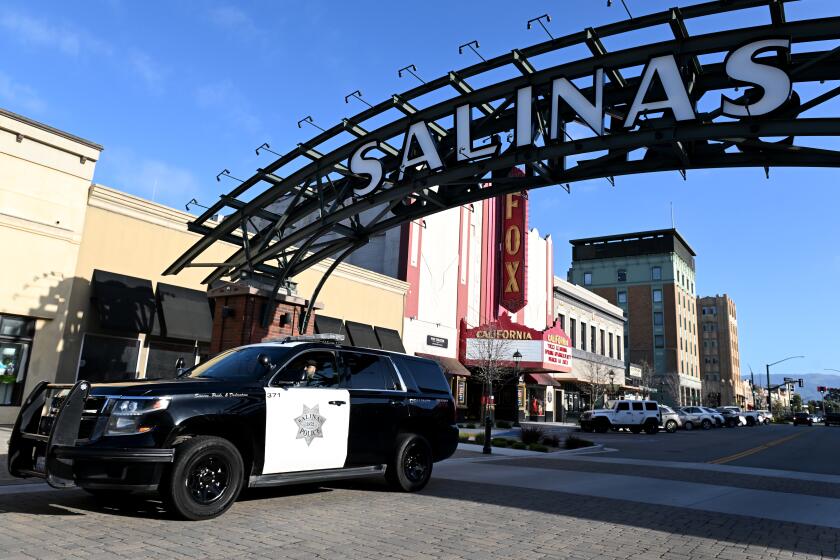Santa Barbara News-Press bankruptcy brings uneasy end to an owner’s bitter tenure
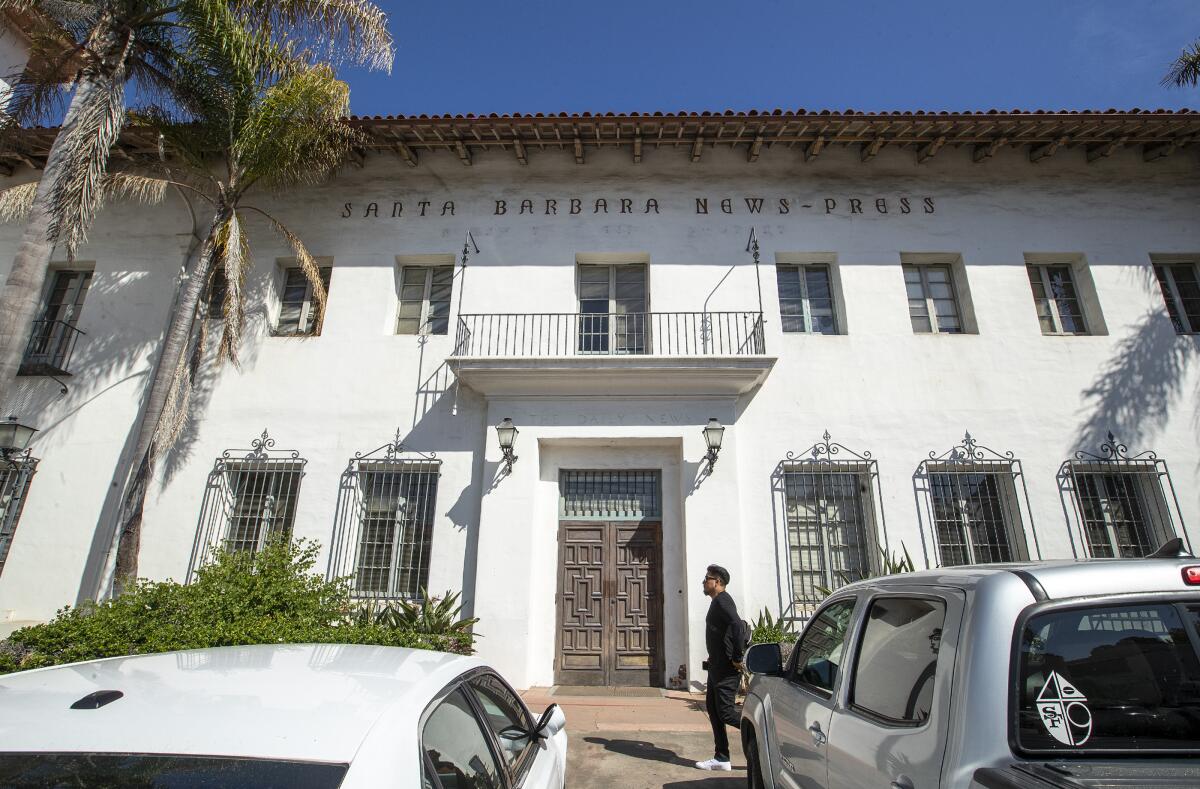
- Share via
SANTA BARBARA, Calif. — This city of red-tile roofs, temperate breezes and coastal charm has long glimmered as one of those exceptional California places.
Its natural beauty attracts a literate and engaged population, and its residents, at least from afar, seem unduly blessed with fine weather, prosperity and more than a dose of the good life.
That good fortune appeared to shine on Santa Barbara in 2000, when one of the state’s richest women bought the Santa Barbara News-Press, a venerable newspaper that at the time had been at the heart of the city’s public life for more than 130 years. Santa Barbarans cheered at the notion of having a local in charge after more than a decade under the ownership of New York Times Co. They saw in Wendy McCaw an owner with the financial resources (once pegged by Forbes at $1.5 billion) to ensure long-term viability of the Pulitzer Prize-winning news outlet. And they liked what they knew of her politics: environmentalist; champion of wildlife. McCaw seemed in step with the liberal-leaning beach and university community.
The reports of a match made in heaven proved greatly exaggerated. Within a few years, McCaw’s relationship with newsroom leaders — and then with many readers — began to crumble. A “bloodbath” exodus of top editors in 2006 unleashed what would become a slow-motion unraveling of the newspaper and its credibility.
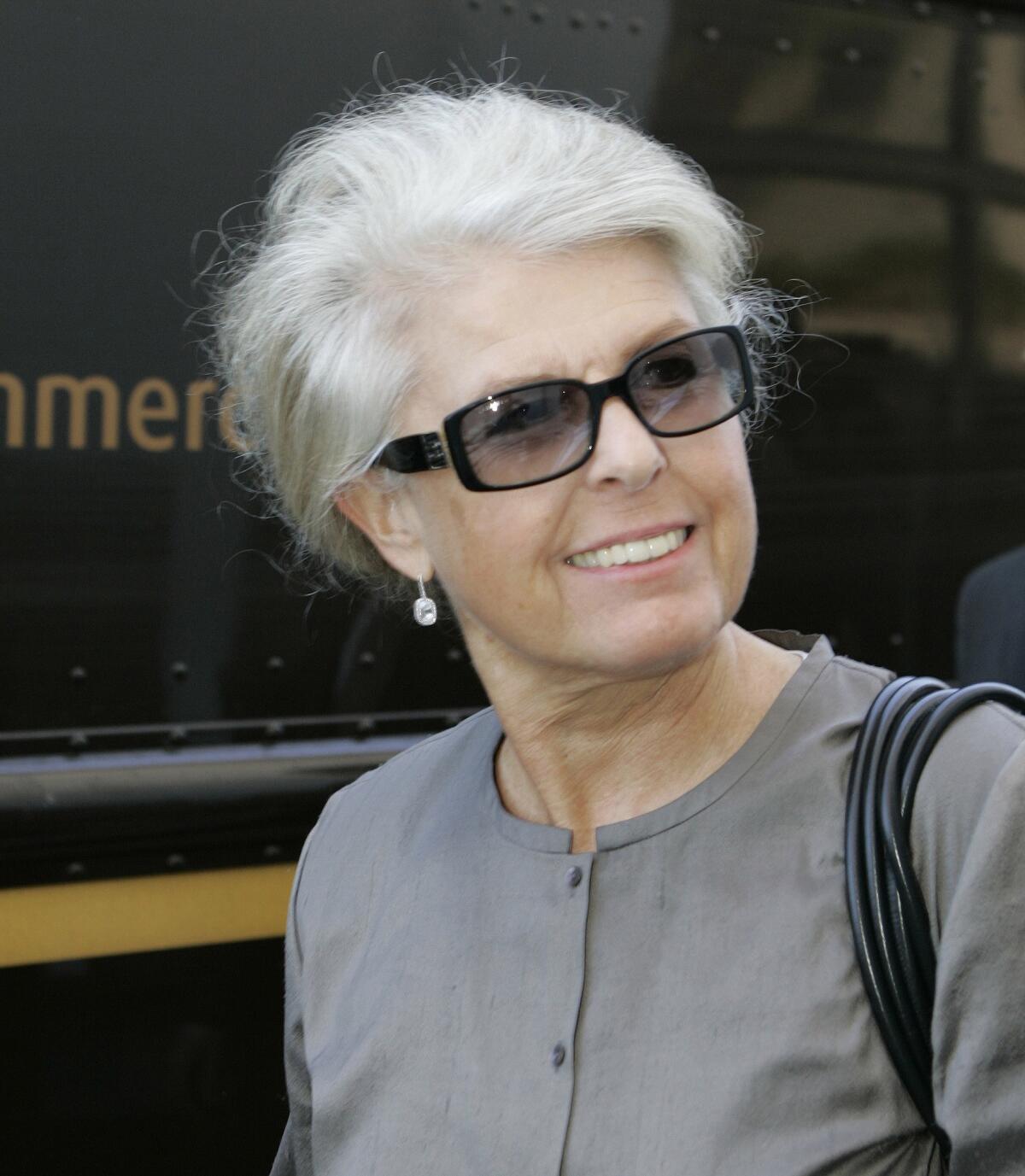
The downward spiral reached rock bottom July 21, when Ampersand Publishing, the McCaw-led company that owns the News-Press, filed for bankruptcy. The finishing stroke came without fanfare or public notice. “All of our jobs are eliminated, and the News-Press has stopped publishing,” Managing Editor Dave Mason wrote in a brief email to the outlet’s staffers. “They ran out of money to pay us.”
Santa Barbarans reacted to the shutdown with measures of sadness and resignation. Many said the newspaper’s fate had been sealed ever since McCaw began warring with her staff and injecting her right-leaning, government-upbraiding views deep into the news pages. Whether through inexperience or intent, her critics said, McCaw transformed a respected local news organization — steeped in industry standards of fairness and independence — into a tormented plaything. Circulation swooned.
“It’s been like watching a cancer victim die,” said Dawn Hobbs, a former News-Press reporter, who was fired in 2007 after she called for readers to boycott the paper because of McCaw’s purported meddling in editorial decisions. “You are so sad at the end. But you’re almost relieved that the entity has been put out of its misery.”
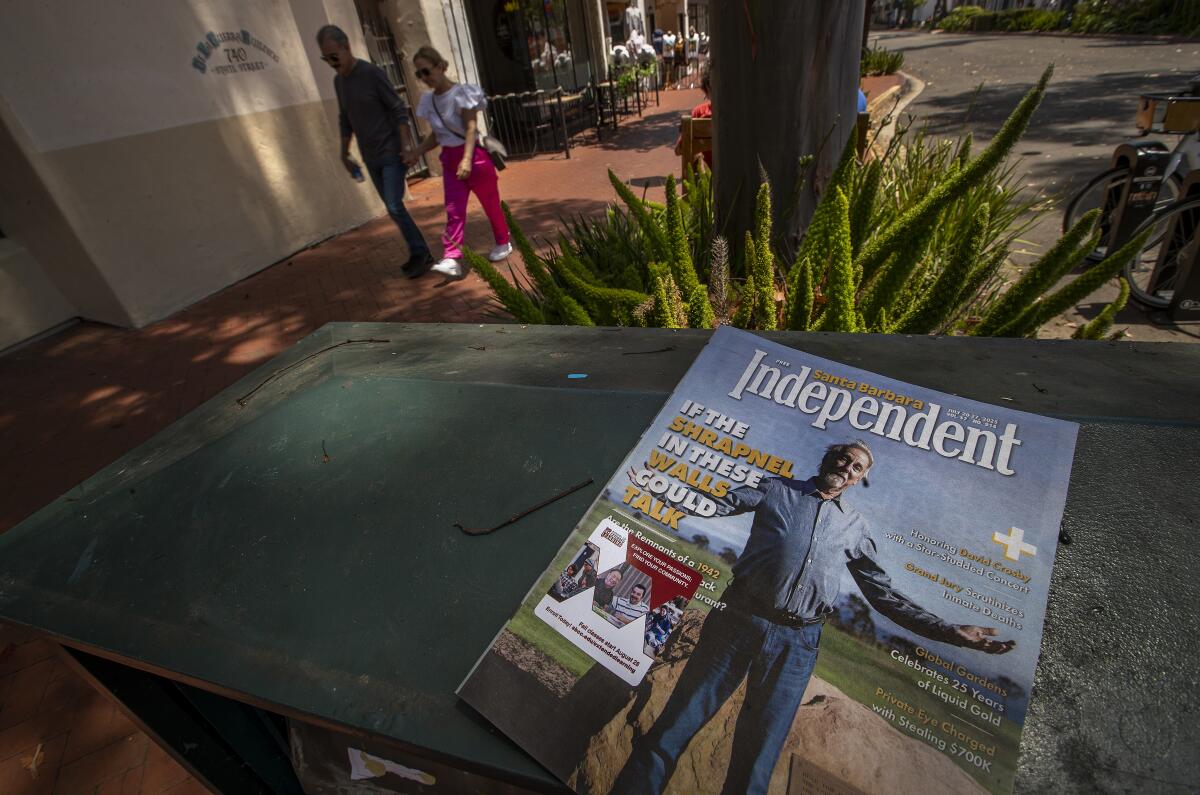
Joining in the regrets about the newspaper’s fate was a nominal rival, Nick Welsh, the irascible dean of the Santa Barbara press corps who has written for the alternative weekly, the Independent, for four decades. “At the time it was ‘Local owner! Billionaire! Animal rights activist!’ There was such an opportunity there for the News-Press, which was just totally squandered,” said Welsh, whose droll “Angry Poodle” column is considered a must-read by many locals.
The effects of the bankruptcy remain unclear because the famously reclusive McCaw, who lives in a gated seaside estate in ultra-luxe Hope Ranch, has said nothing publicly about what will happen next. The paper’s website as of Friday remained intact but frozen with a handful of stories from shutdown day. The site had no mention of the closure.
Mason, the managing editor, responded with a “no comment” to The Times’ interview request. The attorney handling the company’s bankruptcy did not answer emailed questions asking about the legal filing or who would speak for the owner.
McCaw in the past has argued, in columns, interviews, legal proceedings and through intermediaries, that she is the victim in the long-running feud with News-Press journalists and the community. She has contended she was targeted because she dared to buck Santa Barbara’s insular liberal ethos. Her editorial pages often railed against Santa Barbara’s left-leaning orthodoxy and the purported overreach of the local, state and federal governments.
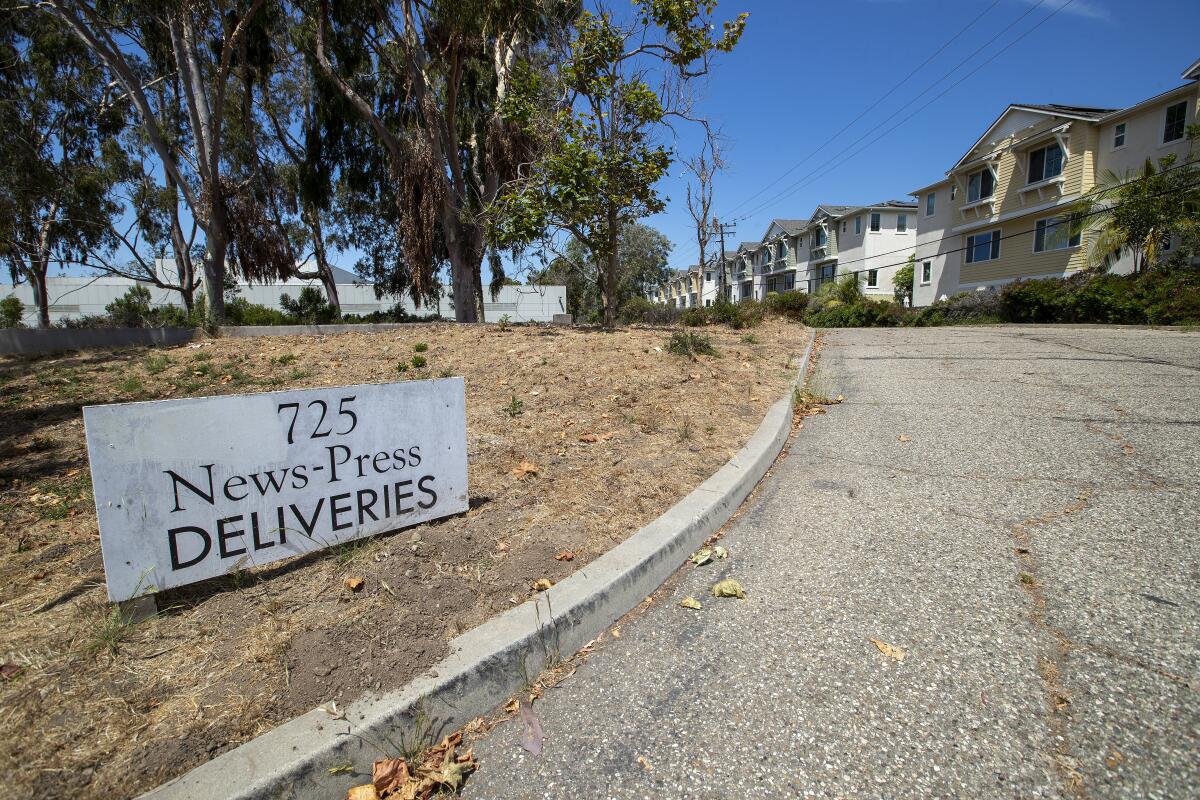
With the News-Press team silent, it was left to journalist Joshua Molina of Noozhawk — an online site maintained largely by former News-Press staffers — to alert the community that a newspaper founded not long after the Civil War was no more.
That’s not to say the closure shocked Santa Barbara. Locals had watched the paper go from a publication with a daily print circulation of more than 45,000 and a robust website to an online-only enterprise with paltry local coverage and national stories provided by a right-tilting news service. A news staff of close to 50 withered to fewer than 10 and became reliant on student interns to cover many public meetings.
The Chapter 7 bankruptcy filing by parent company Ampersand Publishing calls for liquidation, not a reorganization, suggesting there will be little chance for a new owner to take over. The filing claims the News-Press has less than $50,000 in assets and up to $10 million in liabilities, owed to 818 individuals and entities, including subscribers and McCaw. Two of the most valuable holdings — the News-Press’ graceful Spanish-style headquarters on De La Guerra Plaza and its Goleta printing plant — are owned by other McCaw companies.
Former employees expressed bitterness that the Chapter 7 filing could mean a crushing postscript to their two-decade legal fight with McCaw. They feared it might allow the owner to avoid paying nearly $3.5 million in back wages and interest levied by the National Labor Relations Board, which years ago found the company guilty of unfair labor practices. McCaw’s repeated appeals extended the ordeal through last summer, when the 9th Circuit Court of Appeals agreed that she needed to pay up.
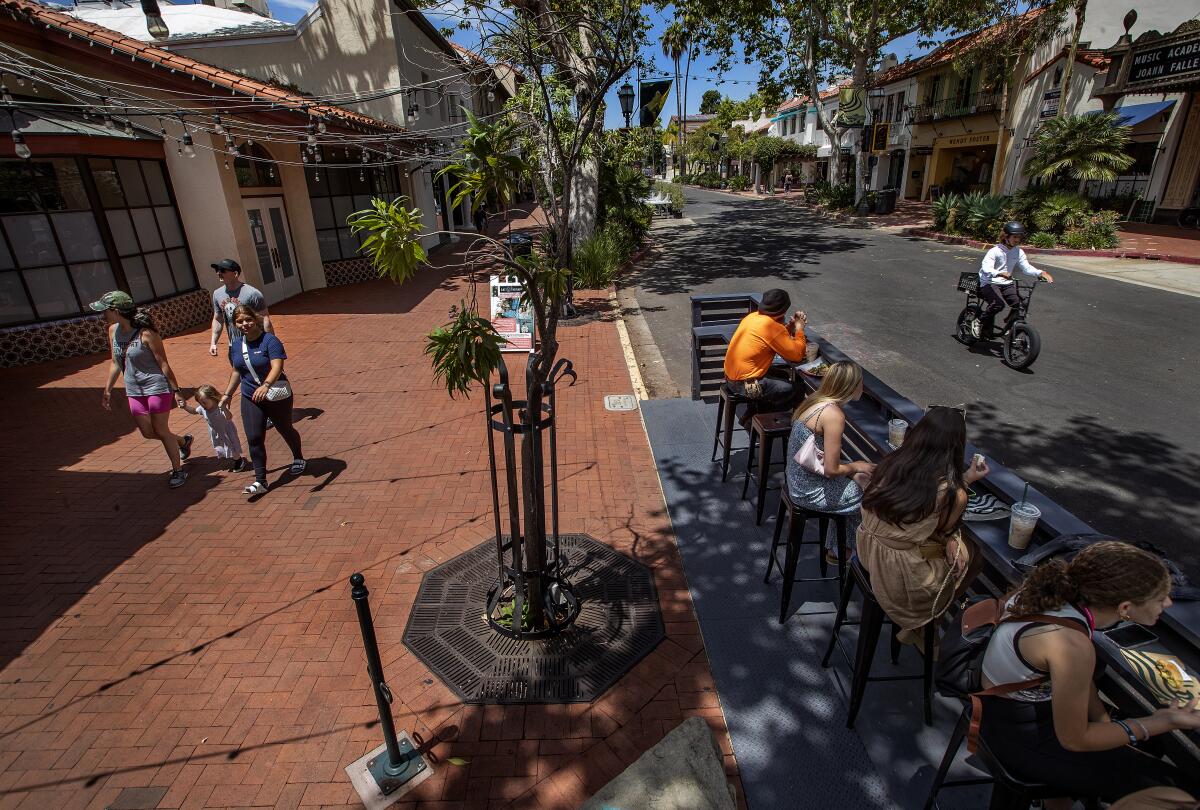
“I hope there is a way for the creditors to go after her and force her to sell those properties to pay her debt,” said Hobbs, the former reporter. “She is coming out of this unscathed while the lives of so many have been turned upside down.”
This is not where this Santa Barbara media marriage was supposed to end.
McCaw had obtained much of her fortune in a divorce settlement from her one-time Stanford University sweetheart, Craig McCaw, a Seattle-area cellular phone industry magnate who became a multibillionaire.
After Wendy McCaw bought the paper from the New York Times in 2000 for a reported $110 million, she spoke of wanting to bolster attention to local issues. In an essay headlined “Integrity,” McCaw pledged “to leave it entirely to our newsroom professionals to decide which stories were worth covering and how they should be covered.”
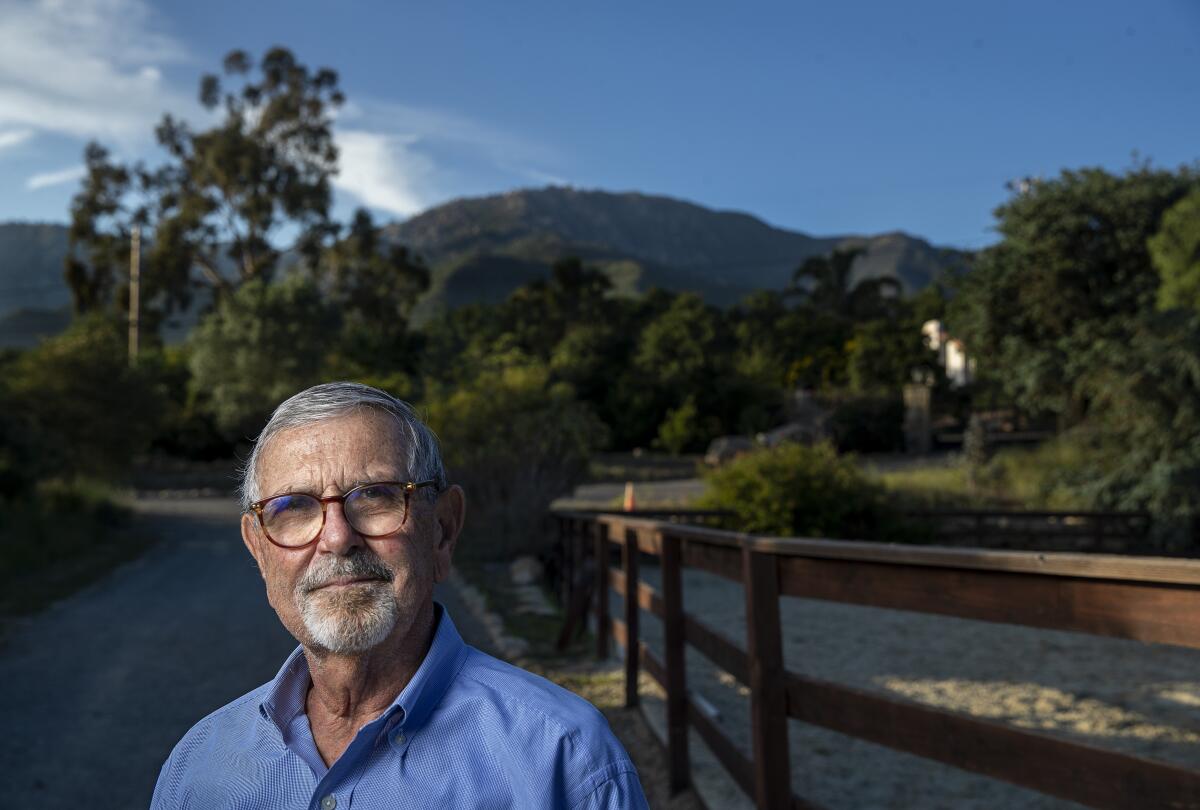
The paper’s bid for journalistic excellence was reinforced in 2002, when Jerry Roberts, a noted political writer and former managing editor of the San Francisco Chronicle, took the post of executive editor. Reporters who worked under Roberts in those early years described an era of ambition, growth and an imperative to hold powerful interests to account.
But the good times did not last.
One dispute arose when McCaw directed that the paper kill a short article about a drunk-driving sentence given to the News-Press’ editorial page editor, who was soon to be publisher. The journalists argued the bust was public information, while the company countered the paper didn’t cover most DUIs that didn’t involve injury or death.
In another owner-newsroom beef, a reporter and three editors drew a sharp reprimand for publishing the address where actor Rob Lowe had applied to public agencies to build his “dream home,” a mega-mansion with elaborate trappings proposed for a vacant lot in Montecito. The journalists argued for transparency in a matter of public concern. McCaw, a personal friend of Lowe’s, said listing the address intruded on his privacy.
In what the Independent reported as a “self-inflicted bloodbath,” Roberts, four other top editors and veteran columnist Barney Brantingham resigned en masse in July 2006, protesting what they described as McCaw’s improper meddling in editorial content. The owner countered that she was the one trying to uphold journalistic standards because “news articles became opinion pieces, reporting went unchecked and the paper was used as a personal arena to air petty infighting by the editors.”
The meltdown drew national attention, most of it accusing McCaw of violating the journalistic credo that insists on a “wall” between media owners and news-gatherers. Renowned political commentator Lou Cannon, a Santa Barbara resident, accused McCaw of destroying the public’s trust and canceled his subscription.
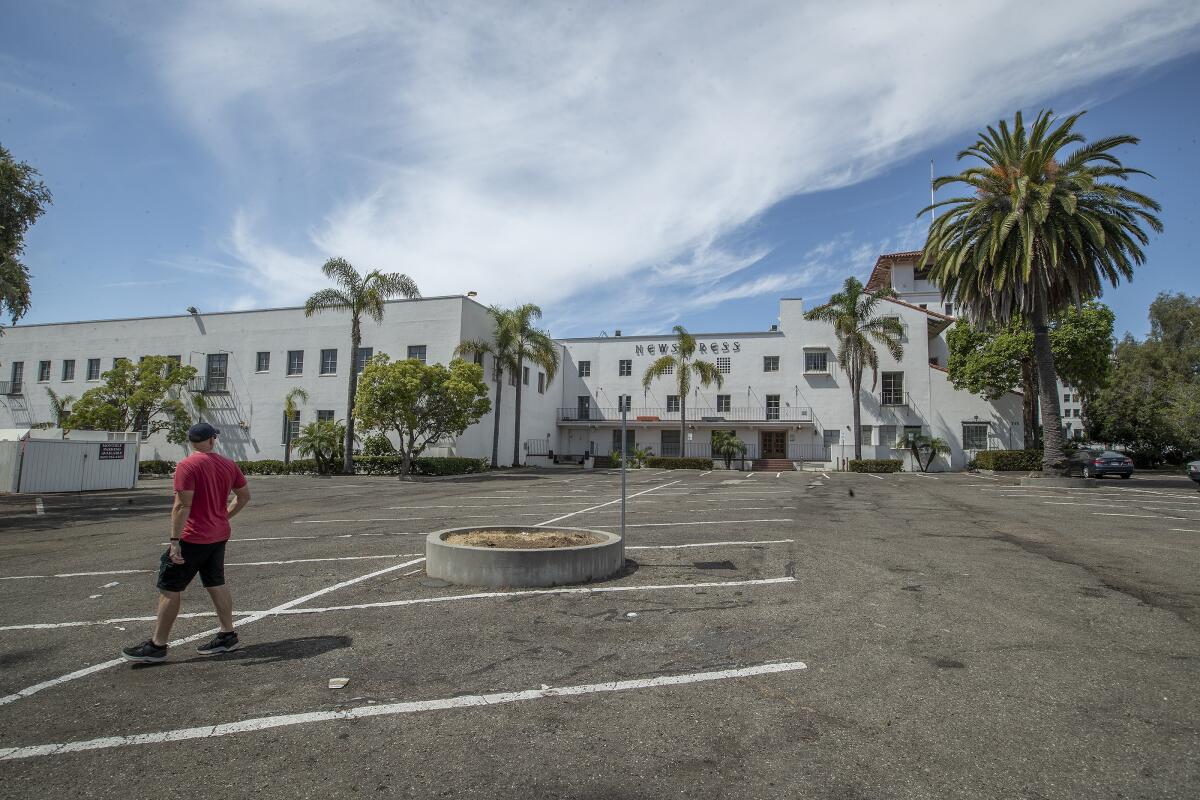
Journalists who remained at the Santa Barbara paper began labor-organizing and voted for representation by a unit of the Teamsters Union, also calling for a public boycott of the News-Press to protest the owner’s purported overreach into editorial matters.
In rapid succession, eight journalists were fired. Two were accused of bias in their reporting. Six others hung a banner above the 101 Freeway that urged “Cancel Your Newspaper Today!” in protest of what they said was McCaw’s failure to bargain and intrusion into news decisions.
The NLRB in 2011 declared that the “News-Press Eight” (as the Independent called them) had been illegally terminated for engaging in protected union activities. The agency ordered them reinstated. But a federal appeals court upheld the terminations in 2012. “The First Amendment affords a publisher — not a reporter — absolute authority to shape a newspaper’s content,” the three-judge panel ruled.
The Byzantine legal fights dragged on. In one round, a federal appellate court ruled that the News-Press had engaged in “unusually aggravated conduct” against its employees. That conduct included bargaining in bad faith, discontinuing merit raises and unilaterally transferring work away from union employees to nonunion workers. Last summer, the 9th Circuit Court of Appeals upheld an order for the News-Press to pay $2 million in back wages and other levies, which had grown with interest to nearly $3.5 million by the end of 2022.
The decline of Salinas’ 152-year-old newspaper leaves residents hungry for a trusted watchdog and worried about what stories won’t be covered.
The clashes between McCaw, her staff and the community would die down for a time, only to flare anew: Another reporter and editor lost their jobs after the owner objected to a story she said quoted then-Mayor Marty Blum — a liberal and McCaw foe — too often. Many readers objected strongly in 2015 when the paper’s publishers insisted on calling migrants who did not hold immigration documents “illegals.”
In 2020, a McCaw editorial accused Democratic lawmakers of using the coronavirus for their own political agenda and compared stay-at-home orders to Nazi Germany. Editor-in-Chief Nick Masuda quit soon after.
As with many prolonged passings, the demise of the News-Press felt both inevitable and sudden. Sitting at the bar of a favorite local haunt, Harry’s Plaza Cafe, Bente and Stephen Millard shook their heads at the disintegration of a paper “we used to be proud to get on our driveway every day.”
“She can have a conservative slant on the opinion page. That’s her right,” said Stephen Millard, a retired outdoor-festival impresario. “But she shouldn’t be controlling the stories in the news section of the newspaper. And previously the News-Press had supported the community and all sorts of events. That all seemed to slip away.”
In conversations with a dozen locals, it was clear residents had grown accustomed to searching alternative sources to get news about their community: the Independent, in print and online; the Noozhawk website; and Edhat, an online site reliant on citizen journalism.
“Valiant” was the word News-Press veteran Melinda Burns used to describe the efforts made to fill the news void left during the paper’s unraveling. But she and an array of civic activists said the heft and influence of the old News-Press has never been fully replaced.
With his ouster from Fox News, Tucker Carlson holds the rare distinction of being fired by all three major cable news channels. Yet every time so far, he has bounced back and grown his audience, while moving toward darker and more divisive themes. What’s stopping him from doing it again?
Even the News-Press’ origin story has been a point of contention. The owners have long claimed an 1855 birthday and asserted the paper’s position as the oldest in Southern California. But a 1941 history published by the federal Works Progress Administration said the agency’s research supported a May 1868 birthday for the Santa Barbara Post, one of the publications later melded into what became the News-Press.
Birth date aside, longtime residents strike a uniform note of nostalgia about the newspaper’s founder, a towering figure named Thomas More Storke.
Storke was introduced to the trade by his father and went from cub reporter to editor to owner, a journalist acclaimed for sterling ethics and civic activism. He took on big topics in the pages of the News-Press and rallied his community to tackle outsized public works. He is credited as the force who drove forward Santa Barbara’s Mediterranean motif and generous open spaces; championed the Lake Cachuma reservoir, and demanded a University of California branch just up the road in Isla Vista.
Most notably, he powered a 1961 editorial exposé revealing the skulduggery and character assassination employed by the John Birch Society, rabid anti-Communists who had risen to prominence in California.
Storke won the 1962 Pulitzer Prize for editorial writing. When he died in 1971, at 94, former Chief Justice Earl Warren memorialized the Santa Barbara native as “one of the last of the old-time giants of journalism whose like will not be seen again.”
Santa Barbara County Supervisor Laura Capps grew up next door to the Storke home, and her father and mother, former U.S. Rep. Lois Capps (D-Santa Barbara), spoke reverently about the storied publisher.
“He stood as this pillar of integrity,” said Supervisor Capps. “And then [McCaw] turned the News-Press into something unrecognizable and something that actually detracted from the community.”
McCaw, asked through intermediaries to comment, failed to respond.
More to Read
Sign up for Essential California
The most important California stories and recommendations in your inbox every morning.
You may occasionally receive promotional content from the Los Angeles Times.

